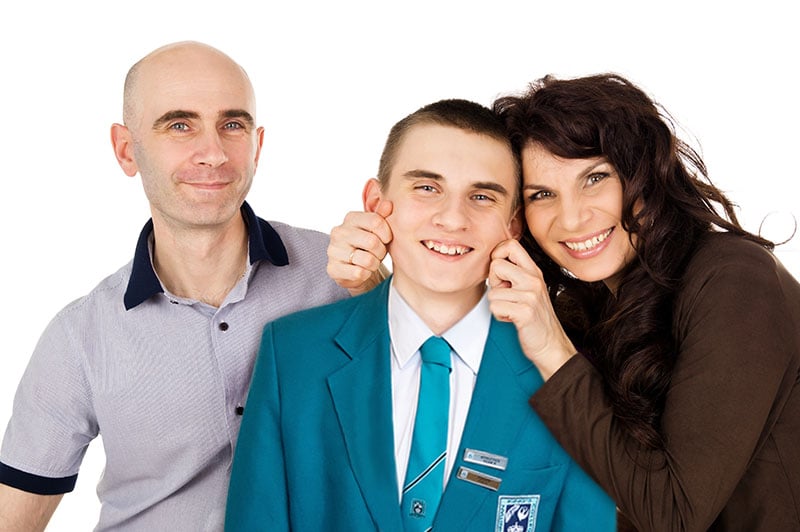
The memories of that little tyke shyly holding your hand as they started school are over twelve years old! That little treasure has somehow morphed into a moody, opinionated, spotty giant, eating you out of house and home, and wearing a King’s white shirt. Guess what? They need you more than ever.
Preschool, prep, and primary events enjoy a glut of helpers. Parents volunteer for all sorts of events; they read with the strugglers, bake for sales, cheer on the swimmers, join in praise and worship. But High School seems to be a sort of no-go area for parents, with attendance being the exception rather than the norm. This is partly the evolution of the growing-up process as our kiddies become taller than us and apart from us. Senior High School seems even more daunting for parents as peers, teachers, and coaches appear to become more important influencers on our children. Our adult-looking kids seem not to need us like they did. And this is true. And, also, not true.
You don’t need me to tell you the aching need teens have to be independent. While they don’t need you to tuck them in or help clean their teeth, they actually need you in more deep and subtle ways.
Before I list some of the things you can do ….. a few caveats:
- You are the world expert on your child. Whether they are four or 14, you is da man.
- Aside from issues of significant mental or emotional instability, you are the parent, the adult, the provider. Your dependent child is not your equal.
- Professional diagnoses trump internet guesswork every time.
So, with those out the way, here are some tips for supporting your nearly-adult child do well as a student:
1. Reach out to your child’s teachers
They love it! Getting to know them will help you relax and signal to your child that you are a team.
2. Set reasonable expectations of behaviour
Courtesy, participation, respect, responsibility, etc, are all markers of a well-rounded child. No phones at the table? Fine. No internet after 9pm? OK. No socialising on a school night? Great. As your child develops, negotiation is a privilege commensurate with their demonstrated level of responsibility.
3. Expect to mess up
You will make mistakes. So will your kid. Overlook the silly stuff. Admit when you’re wrong. Shake it off! A big mistake parents of seniors make is to think because your kid looks like an adult (and may drive, work, vote), they have adult coping mechanisms. In reality, they are emotionally in two camps.
4. Begin the conversation about post-school pathways early on
Don’t be duped to automatically assume that you child will, or even should, attend university. Unlike previous generations, university has become a business. Consider the rate of university attendance for today’s students, as opposed to a generation ago. Are kids miraculously smarter? Or is something else going on? Consider what your child likes, what s/he is good at, what kind of person they are.
5. Make sure there is a Plan B in place for your child
And a Plan C, D, E… As many as you like. What will we do when/if…? Not in a catastrophising way, but to reassure your child that nothing is “make or break”. Because it isn’t. Almost nothing is.
6. Diet, exercise, relaxation, leisure, family time...
As applies in your circumstance, make opportunities. Try to eat together without the telly. Make sure you know what they’re eating (for the most part). Be a good example and look after your own well-being.
7. Resist the temptation to advise, unless specifically asked
Never let a chance to be quiet pass by. Older teens like to use trusted adults as sounding-boards. Encourage your teen to develop agency in their own lives.
8. With school-related problems, believe your child but remember, s/he is a child
Senior students may look like adults but lack adult perspective. It’s a fair amount of work and effort for a teacher to communicate with you about a concern; be assured that it is not done lightly. Of course, mistakes can be made, and your child should witness your graciousness and forgiveness in these times.
9. Your child’s happiness is not your main goal
Your main goal is to deliver to society a balanced, contributing citizen, with biblical values, and a heart for the Lord and His people. You and your child will argue, disagree, fight even. That’s too bad. You are not your child’s friend; get some friends your own age! Your job is to to guide, support, provide, love. And not the squishy love that has no boundaries, but the love that is both a hand up and a walk alongside. You are not alone! King’s is a village full of Christian people who will help support you and your child.
10. Parenting is not a competitor sport
It’s not a sport at all. Twenty years ago, it wasn’t even a verb! If you have more than one child, you already know how different kids are, even raised the same way. It doesn't matter whether your child is the fastest/smartest/most creative. It matters that they are confident that you have this - on their side, knowing where to find answers, if you don’t have them yourself.
Chances are, you’ll both survive the final years of schooling. You’re not the perfect parent, and your kid isn’t the perfect kid. And that’s why you’re perfect for each other.
"Start children off on the way they should go, and even when they are old they will not turn from it."
- Proverbs 22: 6










